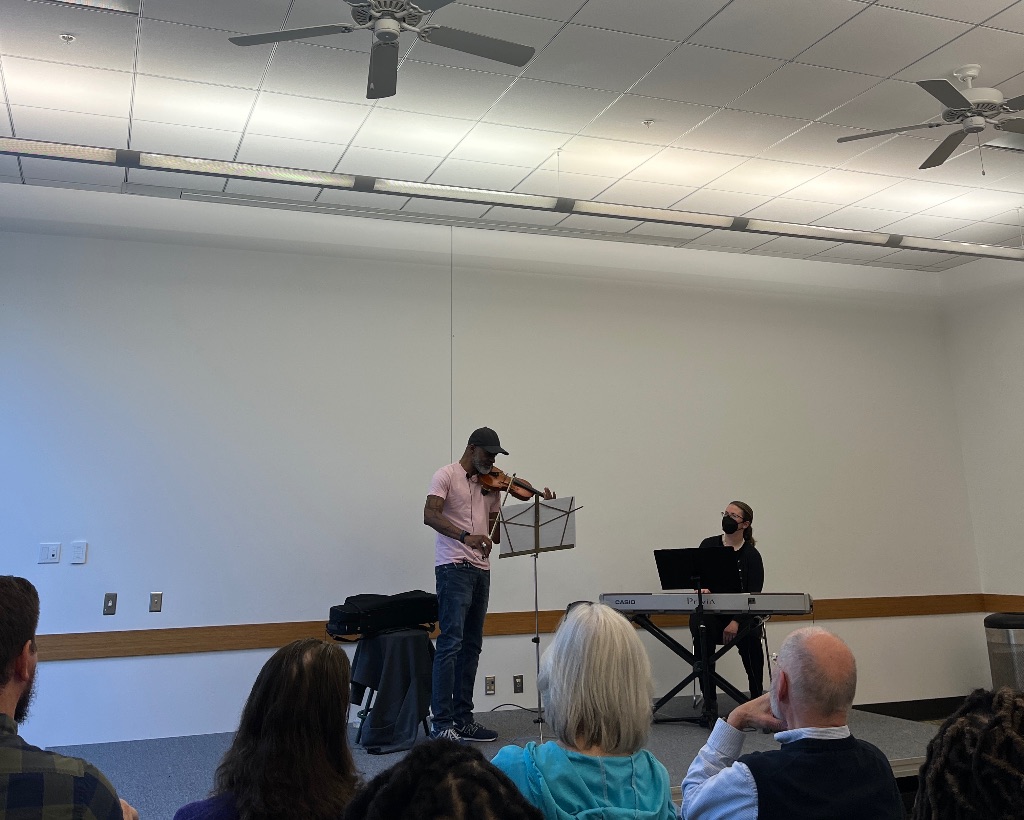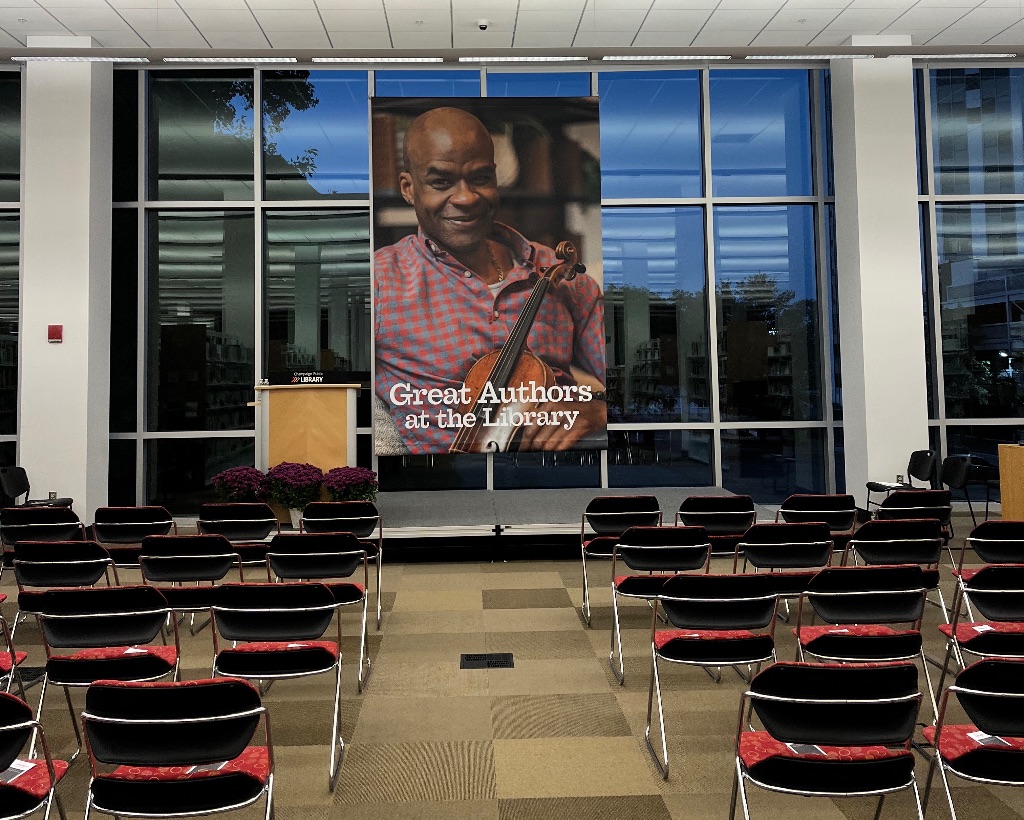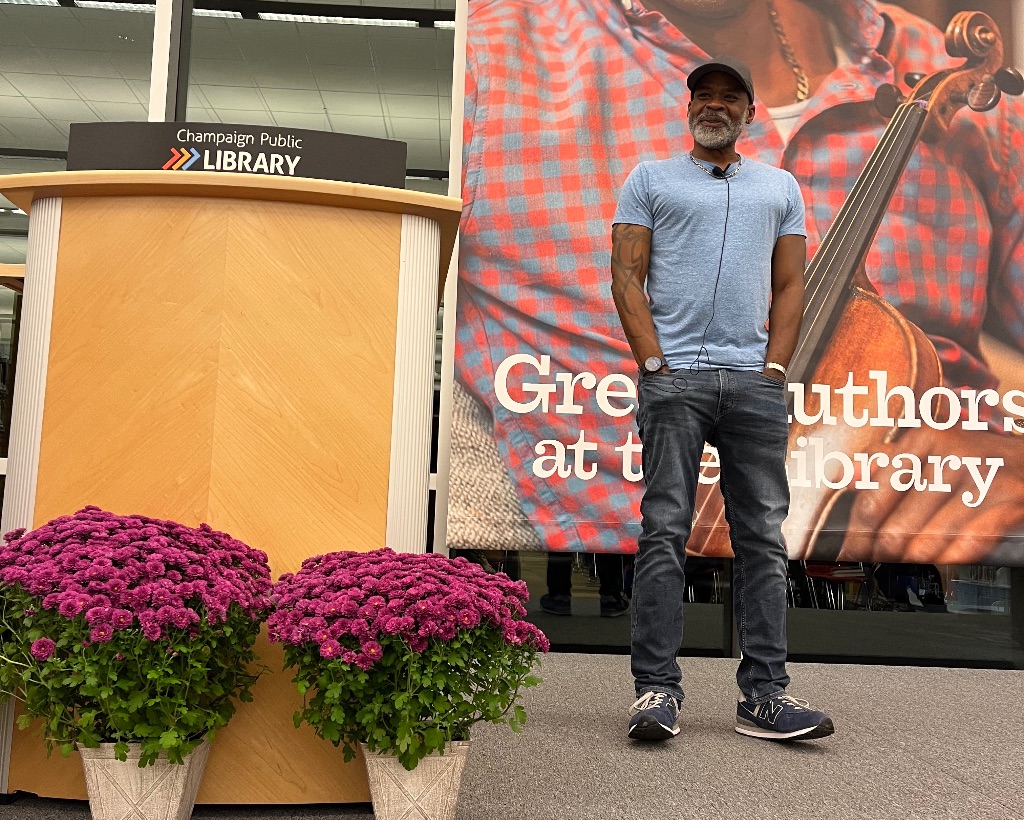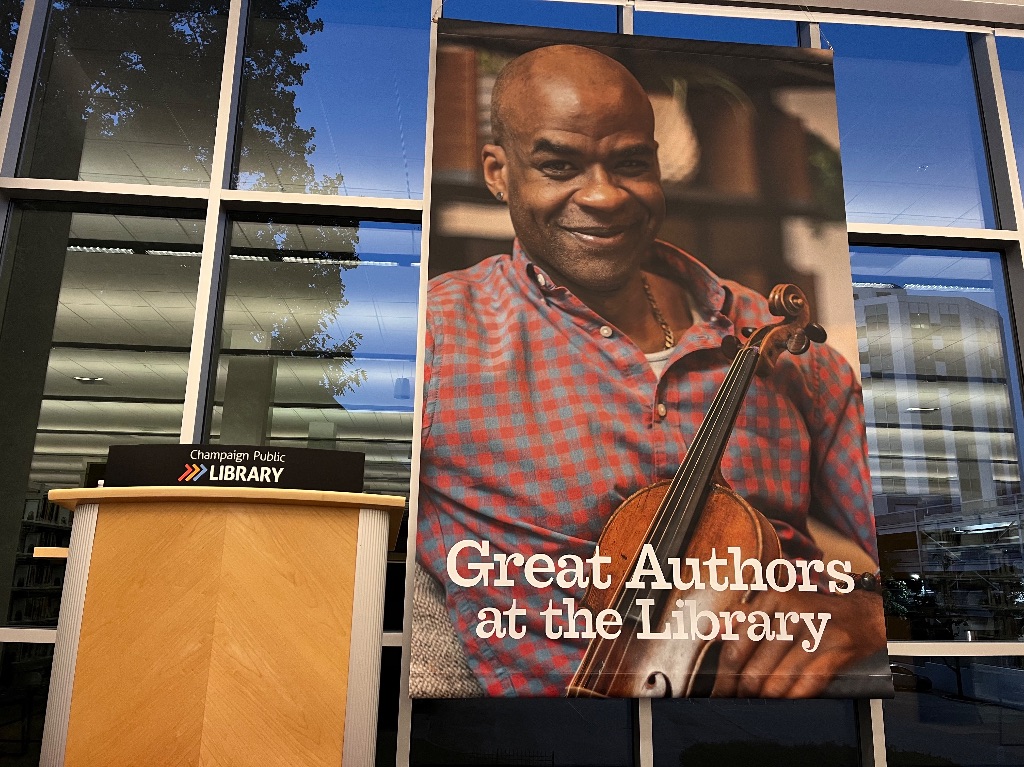Last week I had the opportunity to attend the great authors series at the Champaign Public Library. For the first time, there was an afternoon music event and an evening talk with book signing. I attended both and enjoyed them immensely.

Brendan Slocomb is a musician, teacher, and author, among other things, and with a resume like that I wasn’t sure what to expect. Would he be stuffy and unapproachable or reserved and awkward? But truly he was one of the most warm and inviting people I have ever met. He spoke candidly, he wore jeans, a pink shirt (a nod to the character in his first book, The Violin Conspiracy), and a gray zip up sweatshirt because he wants to show up as his most authentic self. He had no formal presentation and instead spoke with an ease that I imagine comes from years of teaching and performing. Even though both events were full of people, I left feeling like I had been sitting down and visiting with a friend and talking about what he’s been up to.
For the afternoon session, Slocumb played his violin with piano accompanist Cheryl Forest Morganson. Being able to listen to him play — especially after reading The Violin Conspiracy and reading about his immense love of music — felt like a gift. The only complaint I heard was that we all wished he would have played more music. It was such a beautiful experience.
One moment I wished would have ended more quickly was during the Q+A session when a woman asked if Slocumb thought the story would be different if his main character (a Black woman with autism) were white. She seemed unhappy with his answer (which was: he didn’t think so because she would still have been a neurodivergent woman in the 1920s). She continued to probe Slocomb to give her the answer that seemed to align with her own opinion, which was that she “felt like [the treatment of this character] was slavery.”
In Slocomb’s books, many of the scenes come from his lived experiences as a Black man playing classical music, so racism is a huge part of his story. Throughout his books, his characters experience racism of all kinds, from microaggressions to undeniably racist encounters. So the irony was not lost on me that a man who has written extensively on racism was experiencing microaggressions from a person who has read and enjoyed his books. I couldn’t hep but wonder just how many times this has happened to him at his book talks and how people could read the experiences in his books and still be determined to miss the point. Throughout the moment, Slocomb handled it all with the grace, professionalism, and the humor of someone who has done this many times before.

The evening event gave us more time to hear Slocumb’s story. He began playing the violin as a way to get out of math class — “musicians only need to count to four, you know?” — and as he progressed, he had mentors and people helping him along the way. This has influenced his own approach to mentorship saying throughout both talks, “it just takes one person.” In fact, before his afternoon session, he spent his morning talking to and playing for kids at the juvenile detention center, hoping to inspire them. As a teacher for over 12 years, his care for his students is apparent in everything he does. He made the decision to make his main character in Symphony of Secrets autistic because he had taught students with autism and he wanted to give them a voice and a chance to see themselves celebrated in a book. His approach to mentorship aligns with his approach to gratitude; in fact, he has “thank you” tattooed on his arm because in 2017 he almost died. He proceeded to tell us that story and his choice to be vulnerable with a huge group of strangers speaks volumes to who he is.

When I asked him how he gets into the headspace to write the difficult scenes in his stories he told me that being vulnerable is cathartic and by sharing his lived experience with people he is better able to move through the experience and connect with them. And when he was asked if he still would have written his first book if the pandemic (his catalyst for writing his first book) had not happened, he said that the story has lived inside of him since he got his violin, and it was simply waiting for the right time to come out. These two events with Brendan Slocumb showed he is a remarkable person who writes like he plays music: beautifully and with everything he has.








